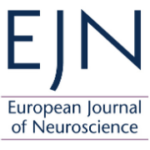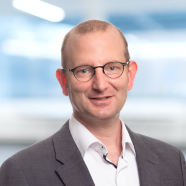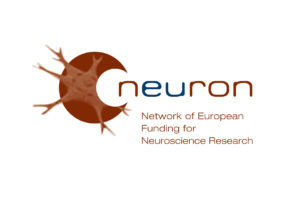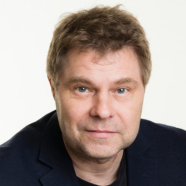- Event Details
- Programme
- Speakers
- Workshops
- Career Panel
- Speakers & Poster Information
- Registration Overview
- Application Form
- Supporters
- Travel and Accommodation
- Organising Team
Getting published: from writing to submission and beyond
Led by European Journal of Neuroscience (EJN)
As an early career researcher, it can be pretty daunting to write your first papers, as many of us are still quite inexperienced in this domain. Although our supervisors and mentors guide us through this process, it can be beneficial also to get tips from the other side: the Editors. Which are the points they are looking for when reviewing a paper for publication? How are they reading our papers and is there a secret formula, to increase our chance for acceptance? Join us for this workshop to meet Editor(s) of The European Journal of Neuroscience and hear from their perspective. We will learn what the actual tasks of an editor entail and you will be able to ask all the questions you have always wanted to know about the editing process!
 The European Journal of Neuroscience (EJN) is the journal of FENS and supports the international neuroscientific community by publishing original high quality research articles and reviews in all fields of neuroscience.
The European Journal of Neuroscience (EJN) is the journal of FENS and supports the international neuroscientific community by publishing original high quality research articles and reviews in all fields of neuroscience.
X: @EJNeuroscience
.
 Workshop leader: Prof. Antoine Adamantidis
Workshop leader: Prof. Antoine Adamantidis
Prof. Antoine Adamantidis is an Associate Professor at the University of Bern, Switzerland, and Director of Zentrum Fur Experimentelle Neurologie (ZEN), specialized in neurophysiology. He earned his PhD from the University of Liege, Belgium, and conducted pioneering research in optogenetics at Stanford University School of Medicine, USA. His current work focuses on understanding neural circuits governing sleep-wake states, using advanced techniques in mice. Prof. Adamantidis has received numerous awards for his contributions to neuroscience, including grants and honors from prestigious organisations.
Twitter: @Tidis
.
Exploring Responsible Research and Innovation (RRI) in Neuroscience: A PhD Workshop
This workshop is designed to provide early career neuroscientists with introductory knowledge on RRI to develop their skills and competencies in the rapidly changing landscape of emerging technologies in neurosciences. Participants will convene in small groups to dissect various facets of RRI pertinent to neuroscience, including Equality and Non-Discrimination, Ethics, Inclusiveness and Public Engagement, Intellectual Property Rights (IPR) and GDPR compliance, Open Innovation, Open Science, and aligning research efforts with the UN Sustainable Development Goals (SDGs). At the era of AI and emerging technologies, understanding RRI becomes more and more important for successful researcher career both in academia and industry.
 ERA-NET Neuron is a network of European Funding for Neuroscience Research focused on brain-related diseases and disorders of the nervous system. It supports pre-clinical, clinical research promoting translational research.
ERA-NET Neuron is a network of European Funding for Neuroscience Research focused on brain-related diseases and disorders of the nervous system. It supports pre-clinical, clinical research promoting translational research.
X:@EraNeuron
 Workshop leader: Dr. Erkki Raulo
Workshop leader: Dr. Erkki Raulo
Dr. Raulo is an experienced academic professional responsible for doctoral education and researcher training at the University of Helsinki. He holds a PhD in Molecular Neuroscience and a title of Docent in Biochemistry at the University of Helsinki. Dr. Raulo is a key person for developing the early career support activities in several European networks, such as ERA-NET NEURON. Recently, he has been focusing on PhD career skills in responsible research for sustainable innovation.
www.linkedin.com/in/erkkiraulo
Public Speaking Skills for PhDs
Led by Chaperone
Giving a presentation can be the most stressful experience one can encounter, especially when communicating in a second language – a common scenario for many of us. Nevertheless, one of the most important aspects of the PhD process is the ability to effectively convey our research. To successfully build collaborations, submit funding applications, or search for the next job opportunity, it is essential to possess the ability to transmit the findings of your study clearly and concisely. In this workshop, you will explore how to present with power to get your ideas heard and understood. From theory to practice, learn how to design engaging presentations and improve your public speaking skills.
 Chaperone is an online platform created to empower scientists and academics in their careers by connecting them with career consultants around the world. On this platform, scientists can browse and book with over 35 experienced career consultants on over 50 different support topics.
Chaperone is an online platform created to empower scientists and academics in their careers by connecting them with career consultants around the world. On this platform, scientists can browse and book with over 35 experienced career consultants on over 50 different support topics.
Chaperone also provides online group training in the format of workshops or webinars.
Twitter: @ChaperoneOnline
.
 Workshop leader: Magda Kufrej
Workshop leader: Magda Kufrej
Magda is a communication and agile expert passionate about sustainability, career development and women empowerment. She gained broad experience in science communication, incl. social media and online presence for researchers, while working at the European Research Council and the European Commission’s departments responsible for R&I. Magda was a Senior Business Developer at the Berlin-based cleantech startup Seqana. Currently she is a full-time coach. She is also a founder of Work Ally, where coaches women on how to accelerate their careers through and often collaborates with Chaperone as a career advisor and trainer.
.
Tips for giving an Excellent Presentation: How to design your presentations and explain your data
In the scientific and academic world, giving presentations is part of the daily business. Whether you’re defending your research, pitching a project, teaching students, or presenting findings at a conference, your ability to communicate effectively can make all the difference. And it’s not just you-your slides are communicating too! So, how can you design slides that help you convey your ideas and findings? How can you minimize text clutter and make your slides appealing and engaging? In this 1.5-hour workshop, we’ll explore various tricks and tools for designing slides, especially how to incorporate images, charts, and figures. We’ll have plenty of hands-on exercises for you to try out these techniques. So, bring your laptop or tablet with presentation software installed and join us for this workshop on slide design.
 Workshop leader: Natalie Badstuber
Workshop leader: Natalie Badstuber
Natalie is a PhD student herself and a passionate teacher. In her research on psychological assessment, she focuses on how to design tests and assessment tools to best capture the abilities of individuals. When she is teaching and giving presentations, she gives special attention to how to design slides to communicate complex concepts (off- and online). In the workshop, she will share some of her insights on slide presentations with us and encourage us to take our slides to the next level of visualisation.
.
Mental Health in Academia
Led by Dragonfly Mental Health
In recent years, increasing evidence points to a mental health crisis in academia, with PhD students and faculty members reporting high levels of anxiety and depression.
In this workshop, we’ll discuss the mental health spectrum, focusing on the particular challenges that PhD students encounter, which can lead to poor mental health. We’ll also explore strategies for nurturing one’s own mental health along with promoting mental well-being within the academic community as a whole.
Participants will learn about the prevalence of mental illness in general and academic populations, an overview of signs and symptoms highlighting those seen in academic settings, and the science underlying the causes and treatments of mental illnesses.
 Dragonfly facilitates academics of all disciplines from around the world to support each other in cultivating mental health in both live events and through an online platform. During COVID-19, we started hosting three live events each week in response to campus and lab shut downs. They are helping to combat social isolation which can lead to exacerbation of mental health issues.
Dragonfly facilitates academics of all disciplines from around the world to support each other in cultivating mental health in both live events and through an online platform. During COVID-19, we started hosting three live events each week in response to campus and lab shut downs. They are helping to combat social isolation which can lead to exacerbation of mental health issues.
 Workshop leader: Dr. Jelena Brasanac
Workshop leader: Dr. Jelena Brasanac
Jelena Brasanac is a postdoctoral researcher at the Klinik für Psychiatry and Psychotherapy, Charite Universitätsmedizin Berlin. She is interested in investigating the interaction between psychiatric symptoms and the immune system, setting up novel models of clinical trials as well as harnessing the potential of altered states of consciousness in the treatment of mental health disorders. Jelena did her PhD in the Medical Neurosciences graduate program at the Charite Universitätsmedizin Berlin in Germany. She finished her bachelor’s and master’s studies in Molecular Biology at the University of Belgrade, Serbia before receiving the NeuroCure PhD fellowship and moving to Berlin. She is an inaugural member of the European College of Neuropsychopharmacology (ECNP) Early Career Academy and a member of the Scientific Program Committee for the 38th ECNP Congress in Amsterdam.
Besides research, she is passionate about the mental health of scientists, so she co-founded Dragonfly Mental Health, a non-profit on a quest to cultivate excellent mental health in academics worldwide. Always involved in student-led initiatives and conferences, she was part of the organising team that brought to life the ENCODS 2018 conference in Berlin!
https://dragonflymentalhealth.org/
Twitter: @JBrasanac
![]()
.